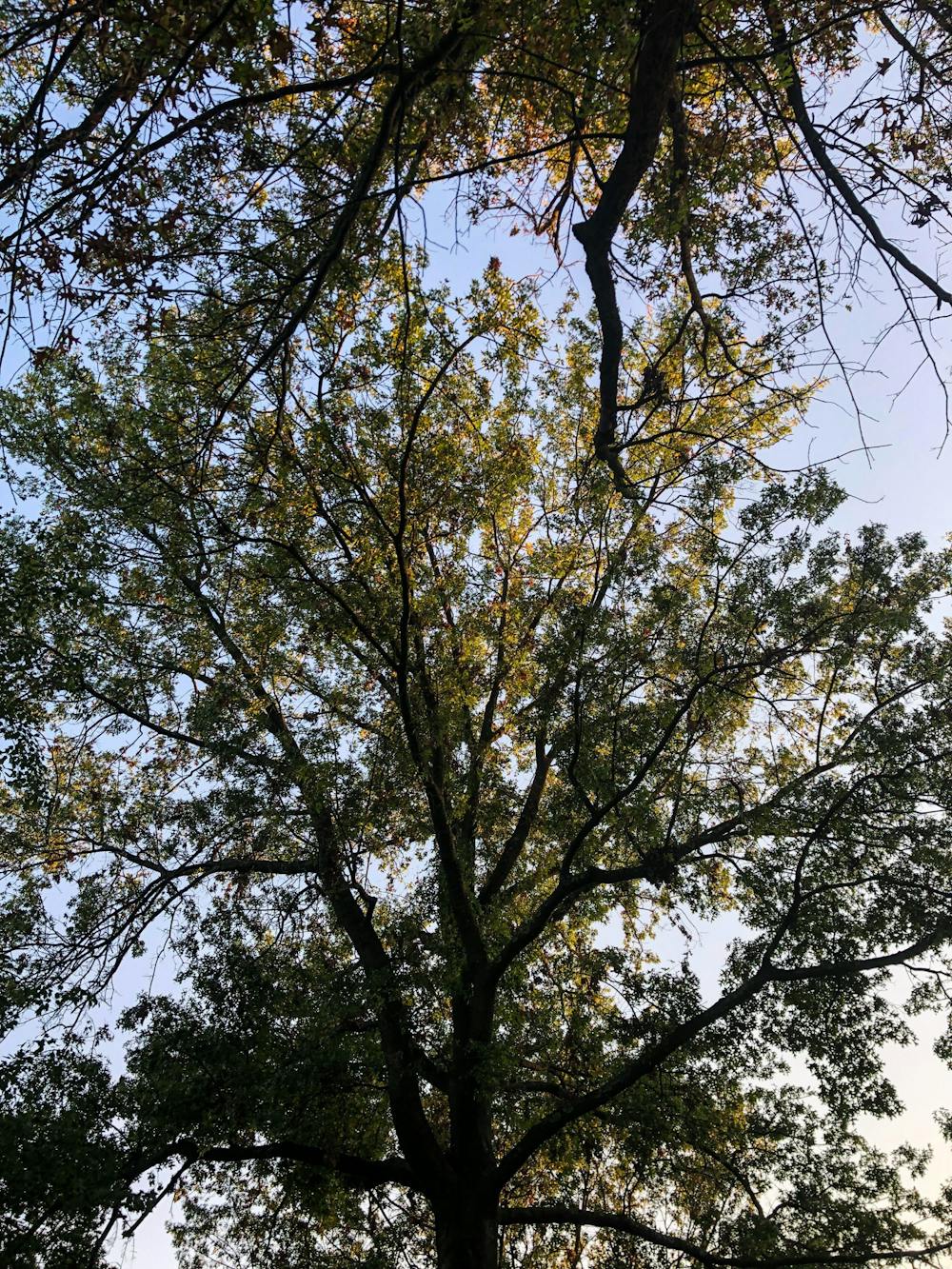
If you’re in college and you haven't learned something new about yourself, you're doing it wrong.
These discoveries might not always be profound — maybe you find out you actually do like pesto (after frequently touting your dislike for it, despite never trying it, because it was green and you were a super mature kid). They might not be related to who you are deep down — maybe you learn that you study a heck of a lot better when it's quiet and you’re not trying to socialize and understand how electromagnetic radiation has anything to do with population ecology (if you know, hit me up, please).
But maybe you’ll learn something new about yourself and it will be insightful, complex and confusing — a sign you’re maturing and growing up, which is terrifying, I know.
It might not come as a sudden realization. You probably won’t be chillin’ in Brody, abruptly overwhelmed by a profound awareness of some drastic change in your identity. You might only notice it when you’re looking back, suddenly remembering something that you never thought about in this way, finally connecting the dots that were always in front of you. They do say hindsight is 20/20, right?
This past week was Bisexuality Awareness Week, which purposefully coincided with our unit on bisexuality in my Human Sexuality class (shout-out to Dr. Kraft). We watched a HuffPost video on the bisexuality spectrum which followed women who identify as bisexual and the ways in which they choose to understand bisexuality. I say “choose to understand” because each woman had a slightly different definition of their bisexual identity.
Historically, bisexuality has been defined as being attracted to two genders, a literal definition stemming from the prefix bi-, meaning two. This was back when gender was strictly binary, in contrast to today, when gender is understood as more of a spectrum — including male, female, nonbinary, genderfluid and everything in between (all of which are valid, of course). Some people still identify with the literal definition of bisexuality, while others may understand their identity in light of the more modern take on gender: being attracted to someone regardless of their gender.
Robyn Ochs, a prominent advocate of bisexuality and bisexual rights, defines bisexuality as “the potential to be attracted — romantically and/or sexually — to people of more than one sex and/or gender, not necessarily at the same time, not necessarily in the same way and not necessarily to the same degree.” Cool, cool, but isn’t this what pansexuality is?
Pansexuality, literally defined, is the attraction to all genders, stemming from the prefix pan-, meaning all. So what does it mean to identify as bisexual if you understand gender is a spectrum? Shouldn’t this identity, by definition, be pansexuality? No, frankly, because identities are massively more complex than dictionaries can capture. (Bear with me here — like I said, figuring out your identity is confusing.)
It takes time, exploration and maybe even discomfort to discover and understand your identity — don’t worry, you’ll figure it out. It can be even more difficult if the labels you get to choose between are subjective, overlapping and straight-up confusing. One of the women in the HuffPost video commented that the way in which we define something, like sexuality, may actually create confusion (I hear that).
While rolling silverware with my lovely coworkers at 1 in the morning (tip your servers!!), I found myself doing what I always do: living in my head, making things more complicated than they need to be. I realized I had spent so much time thinking about how to refer to myself, the proper label, the correct category, rather than exploring what this aspect of my complex and ever-growing identity means to me, how it makes me feel, how I think about myself. The identity was bigger than the label, at least to me.
This is not to negate the importance of labels — labels can provide a group, identity or community to be a part of. They can communicate identities without uncomfortable explanations or lengthy justifications. In fact, labels are inherent to human nature. They are how we navigate our way through this complex world.
At some point, however, labels might be more harmful or confusing than they are helpful — especially when stereotypes and biases are used to lump groups of people together, resulting in gross misjudgments and harmful consequences. But, I digress.
Maybe we’re getting lost in the nuances of defining something that is bigger and more complex than dictionary definitions, like sexuality and attraction. Maybe the only definition that matters is the one you choose, the one that makes sense to you. There’s no need to explain your identity or justify its validity. However someone chooses to identify is good enough, the definition that matters to them is valid.
Personally, my identity is bigger than the definition, no concrete label needed. I like who I like. And that’s good enough for me.
Jackie Rittenhouse is a junior from San Mateo, Calif. majoring in Psychology and Anthropology.





